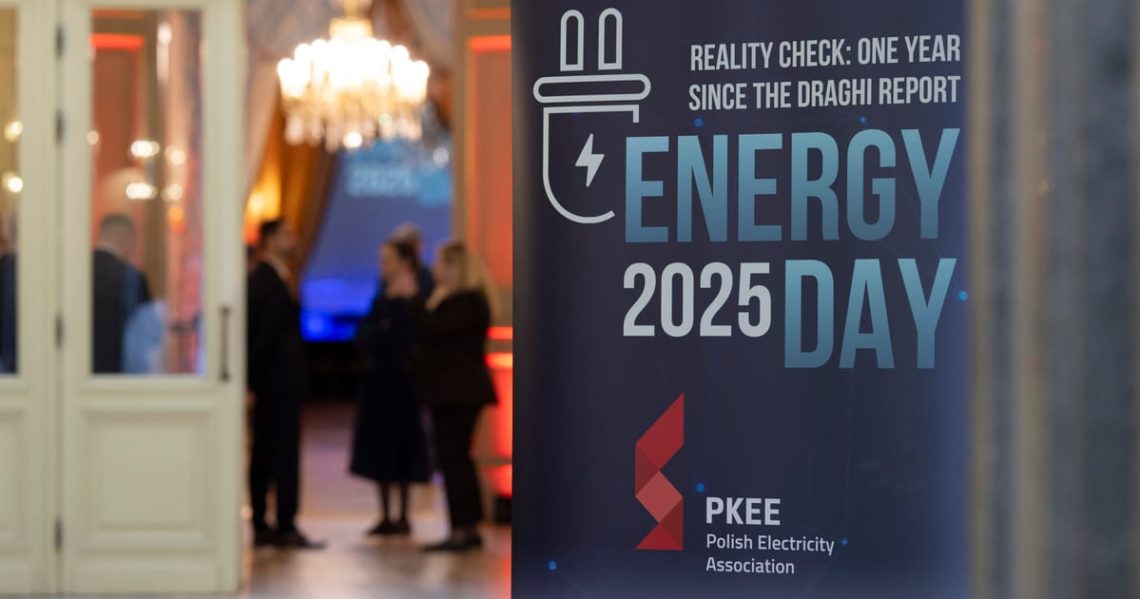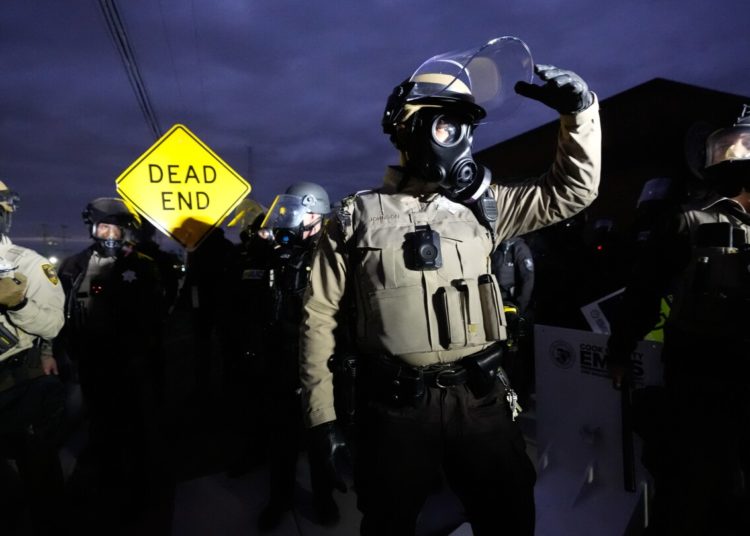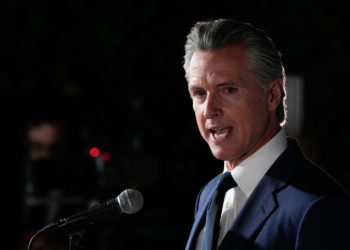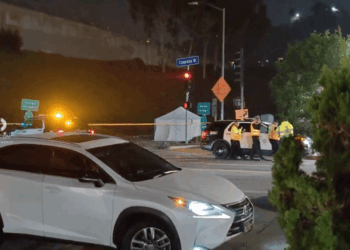Disclaimer:
POLITICAL ADVERTISEMENT
- The sponsor is Polish Electricity Association (PKEE)
- The advertisement is linked to policy advocacy on energy transition, electricity market design, and industrial competitiveness in the EU.
More information here
The European Union is entering a decisive decade for its energy transformation. With the international race for clean technologies accelerating, geopolitical tensions reshaping markets and competition from other major global economies intensifying, how the EU approaches the transition will determine its economic future. If managed strategically, the EU can drive competitiveness, growth and resilience. If mismanaged, Europe risks losing its industrial base, jobs and global influence.
If managed strategically, the EU can drive competitiveness, growth and resilience. If mismanaged, Europe risks losing its industrial base, jobs and global influence.
This message resonated strongly during PKEE Energy Day 2025, held in Brussels on October 14, which brought together more than 350 European policymakers, industry leaders and experts under the theme “Secure, competitive and clean: is Europe delivering on its energy promise?”. One conclusion was clear: the energy transition must serve the economy, not the other way around.
The power sector: the backbone of Europe’s industrial future
The future of European competitiveness will be shaped by its power sector. Without a successful transformation of electricity generation and distribution, other sectors — from steel and chemicals to mobility and digital — will fail to decarbonize. This point was emphasized by Konrad Wojnarowski, Poland’s deputy minister of energy, who described electricity as “vital to development and competitiveness.”
“Transforming Poland’s energy sector is a major technological and financial challenge — but we are on the right track,” he said. “Success depends on maintaining the right pace of change and providing strong support for innovation.” Wojnarowski also underlined that only close cooperation between governments, industry and academia can create the conditions for a secure, competitive and sustainable energy future.
Flexibility: the strategic enabler
The shift to a renewables-based system requires more than capacity additions — it demands a fundamental redesign of how electricity is produced, managed and consumed. Dariusz Marzec, president of the Polish Electricity Association (PKEE) and CEO of PGE Polska Grupa Energetyczna, called flexibility “the Holy Grail of the power sector.”
Speaking at the event, Marzec also stated “It’s not about generating electricity continuously, regardless of demand. It’s about generating it when it’s needed and making the price attractive. Our mission, as part of the European economy, is to strengthen competitiveness and ensure energy security for all consumers – not just to pursue climate goals for their own sake. Without a responsible approach to the transition, many industries could relocate outside Europe.”
The message is clear: the clean energy shift must balance environmental ambition with economic reality. Europe cannot afford to treat decarbonization as an isolated goal — it must integrate it into a broader industrial strategy.
The message is clear: the clean energy shift must balance environmental ambition with economic reality.
The next decade will define success
While Europe’s climate neutrality target for 2050 remains a cornerstone of EU policy, the next five to ten years will determine whether the continent remains globally competitive. Grzegorz Lot, CEO of TAURON Polska Energia and vice-president of PKEE, warned that technology is advancing too quickly for policymakers to rely solely on long-term milestones.
“Technology is evolving too fast to think of the transition only in terms of 2050. Our strategy is to act now — over the next year, five years, or decade,” Lot said. He pointed to the expected sharp decline in coal consumption over the next three years and called for immediate investment in proven technologies, particularly onshore wind.
Lot also raised concerns about structural barriers. “Today, around 30 percent of the price of electricity is made up of taxes. If we want affordable energy and a competitive economy, this must change,” he argued.
Consumers and regulation: the overlooked pillars
A successful energy transition cannot rely solely on investment and infrastructure. It also depends on regulatory stability and consumer participation. “Maintaining competitiveness requires not only investment in green technologies but also a stable regulatory environment and active consumer engagement,” Lot said.
He highlighted the potential of dynamic tariffs, which incentivize demand-side flexibility. “Customers who adjust their consumption to market conditions can pay below the regulated price level. If we want cheap energy, we must learn to follow nature — consuming and storing electricity when the sun shines or the wind blows.”
Strategic investments for resilience
The energy transition is more than a climate necessity. It is a strategic requirement for Europe’s security and economic autonomy. Marek Lelątko, vice-president of Enea, stressed that customer- and market-oriented investment is essential. “We are investing in renewables, modern gas-fired units and energy storage because they allow us to ensure supply stability, affordable prices and greater energy security,” he said.
Grzegorz Kinelski, CEO of Enea and vice-president of PKEE, added: “We must stay on the fast track we are already on. Investments in renewables, storage and CCGT [combined cycle gas turbine] units will not only enhance energy security but also support economic growth and help keep energy prices affordable for Polish consumers.”
The power sector must now be recognized as a strategic enabler of Europe’s industrial future — on par with semiconductors, critical raw materials and defense. As Dariusz Marzec puts it: “The energy transition is not a choice — it is a necessity. But its success will determine more than whether we meet climate targets. It will decide whether Europe remains competitive, prosperous and economically independent in a rapidly changing world.”
The power sector must now be recognized as a strategic enabler of Europe’s industrial future — on par with semiconductors, critical raw materials and defense.
Measurable progress, but more is needed
Progress is visible. The power sector accounts for around 30 percent of EU emissions but has already delivered 75 percent of all Emissions Trading System reductions. By 2025, 72 percent of Europe’s electricity will come from low-carbon sources, while fossil fuels will fall to a historic low of 28 percent. And in Poland, in June, renewable energy generation overtook coal for the first time in history.
Still, ambition alone is not enough. In his closing remarks, Marcin Laskowski, vice-president of PKEE and executive vice-president for regulatory affairs at PGE Polska Grupa Energetyczna, stressed the link between the power sector and Europe’s broader economic transformation. “The EU’s economic transformation will only succeed if the energy transition succeeds — safely, sustainably and with attractive investment conditions,” he said. “It is the power sector that must deliver solutions to decarbonize industries such as steel, chemicals and food production.”
A collective European project
The event in Brussels — with the participation of many high-level speakers, including Mechthild Wörsdörfer, deputy director general of DG ENER; Tsvetelina Penkova, member of the European Parliament and vice-chair of the Committee on Industry, Research and Energy; Thomas Pellerin-Carlin, member of the European Parliament; Catherine MacGregor; CEO of ENGIE and vice-president of Eurelectric; and Claude Turmes, former minister of energy of Luxembourg — highlighted a common understanding: the energy transition is not an isolated environmental policy, it is a strategic industrial project. Its success will depend on coordinated action across EU institutions, national governments and industry, as well as predictable regulation and financing.
Europe’s ability to remain competitive, resilient and prosperous will hinge on whether its power sector is treated not as a cost to be managed, but as a foundation to be strengthened. The next decade is a window of opportunity — and the choices made today will shape Europe’s economic landscape for decades to come.
The post Europe’s energy transition must power a stronger tomorrow appeared first on Politico.




